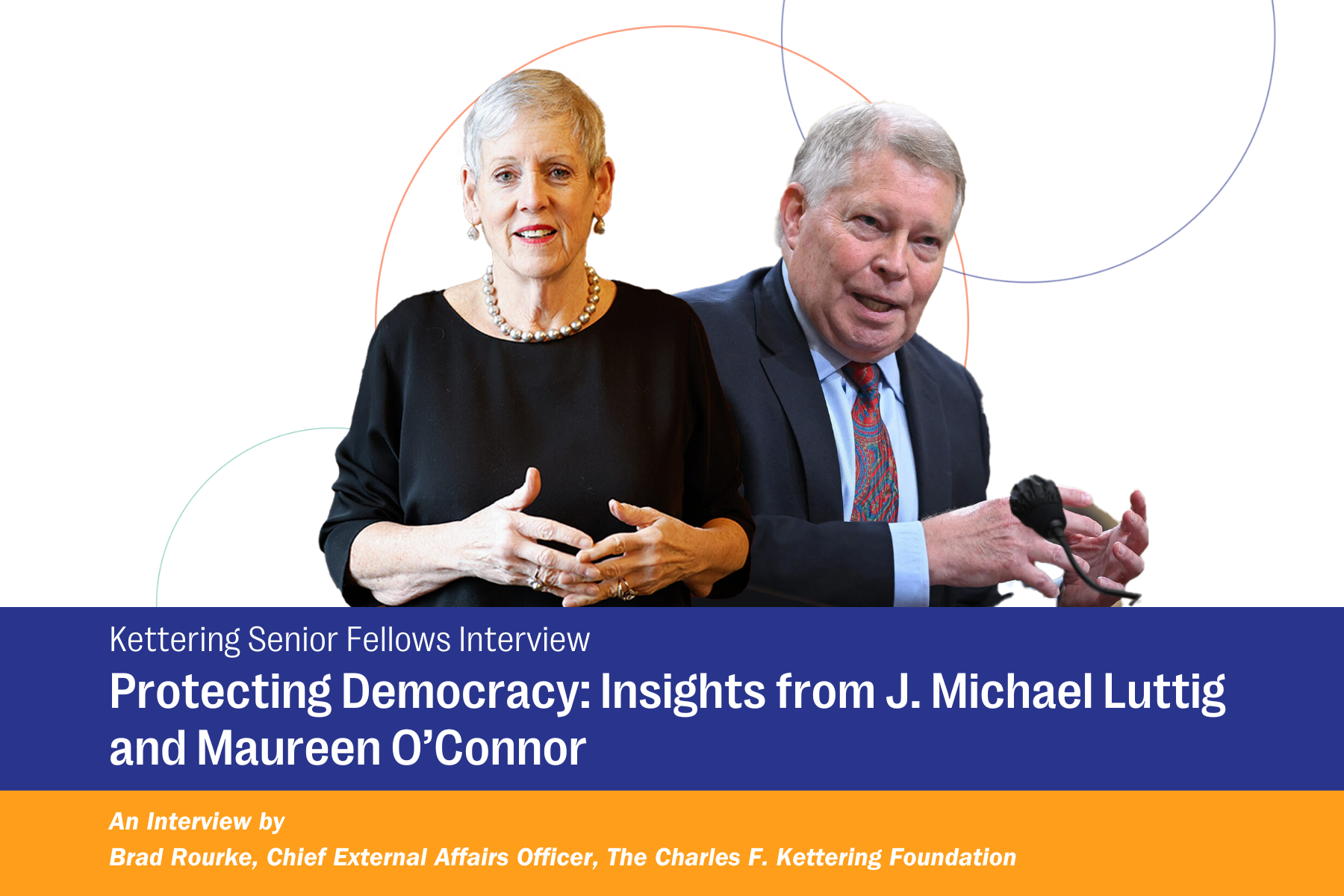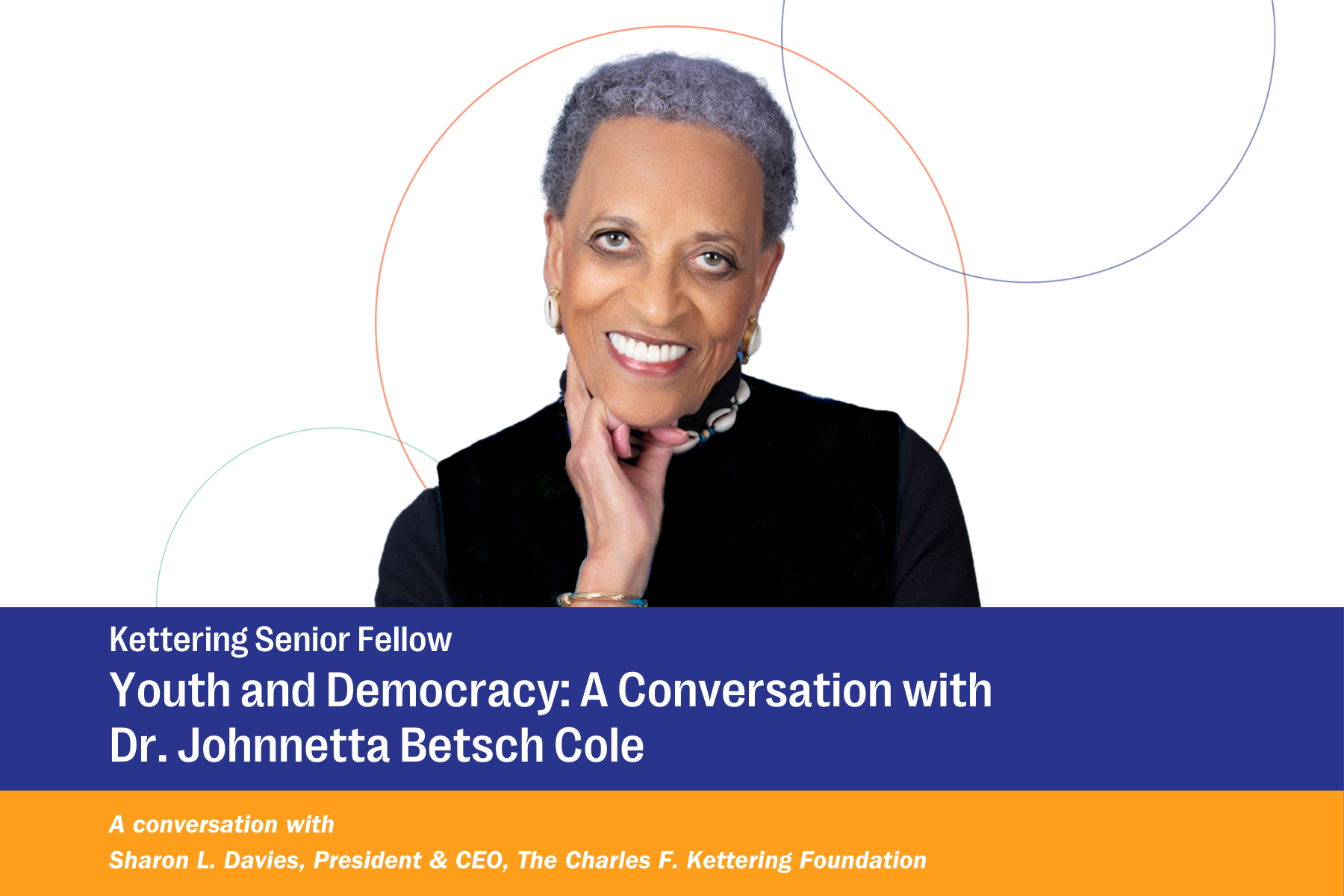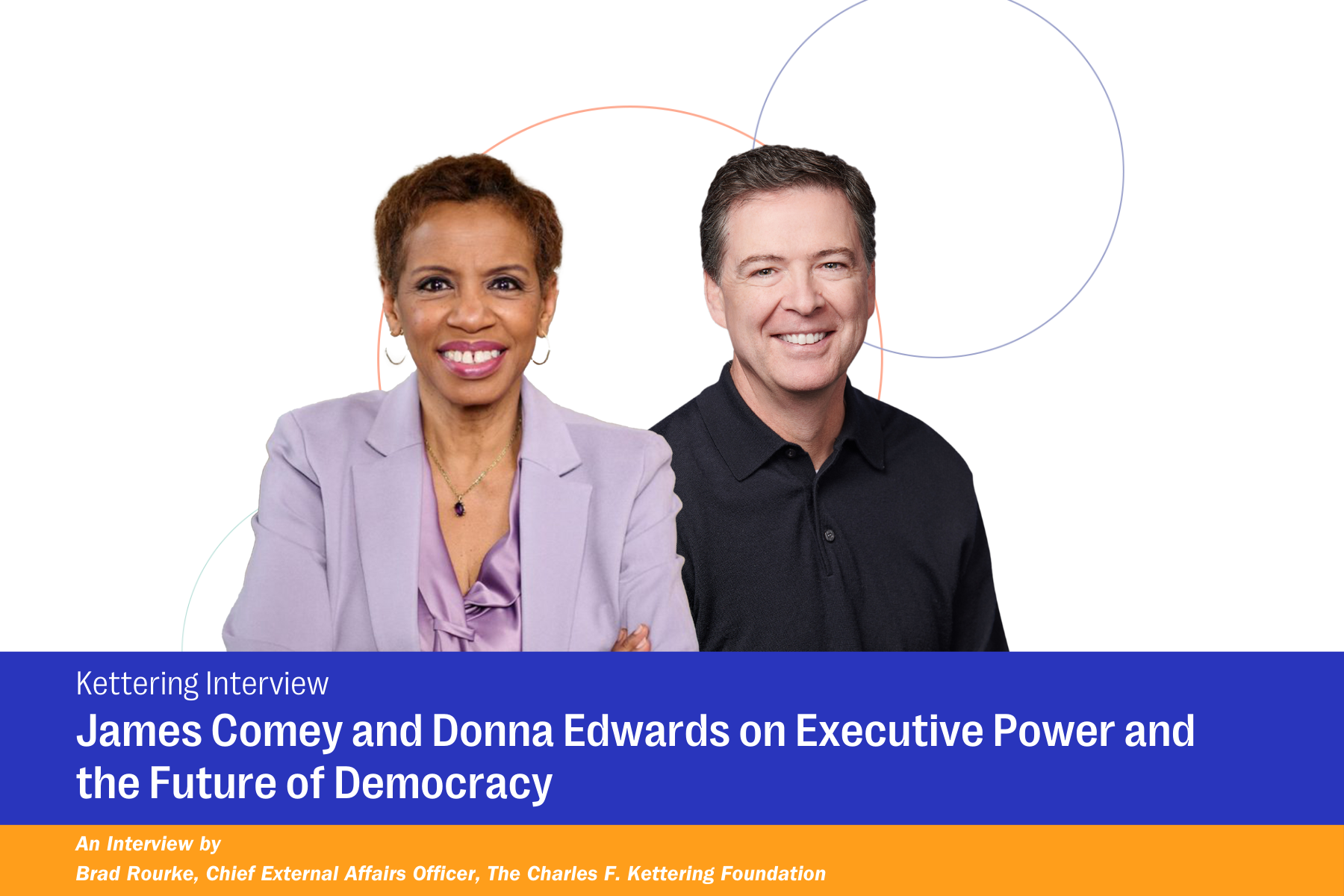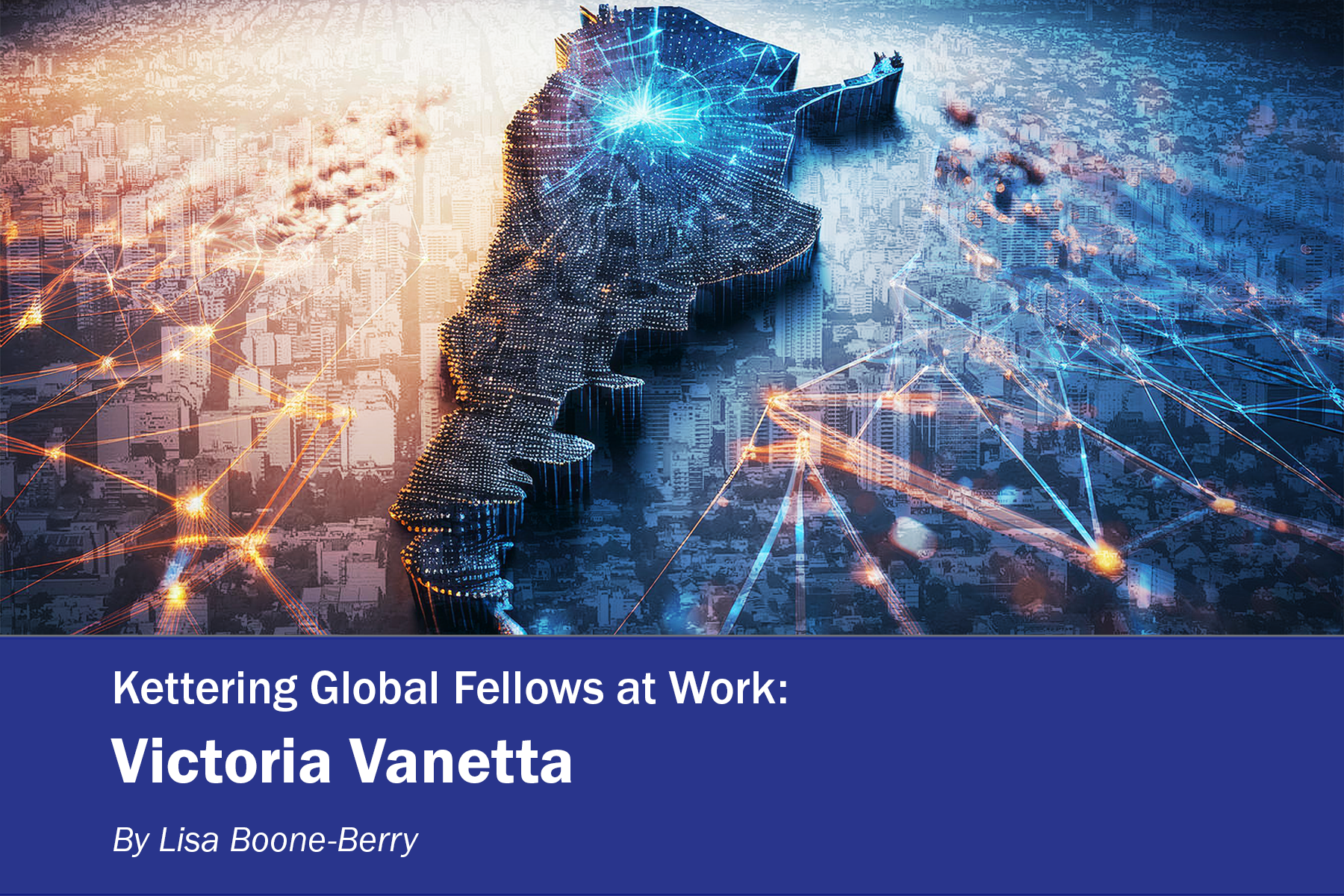Accountability Is Lost with Partisan Gerrymandering
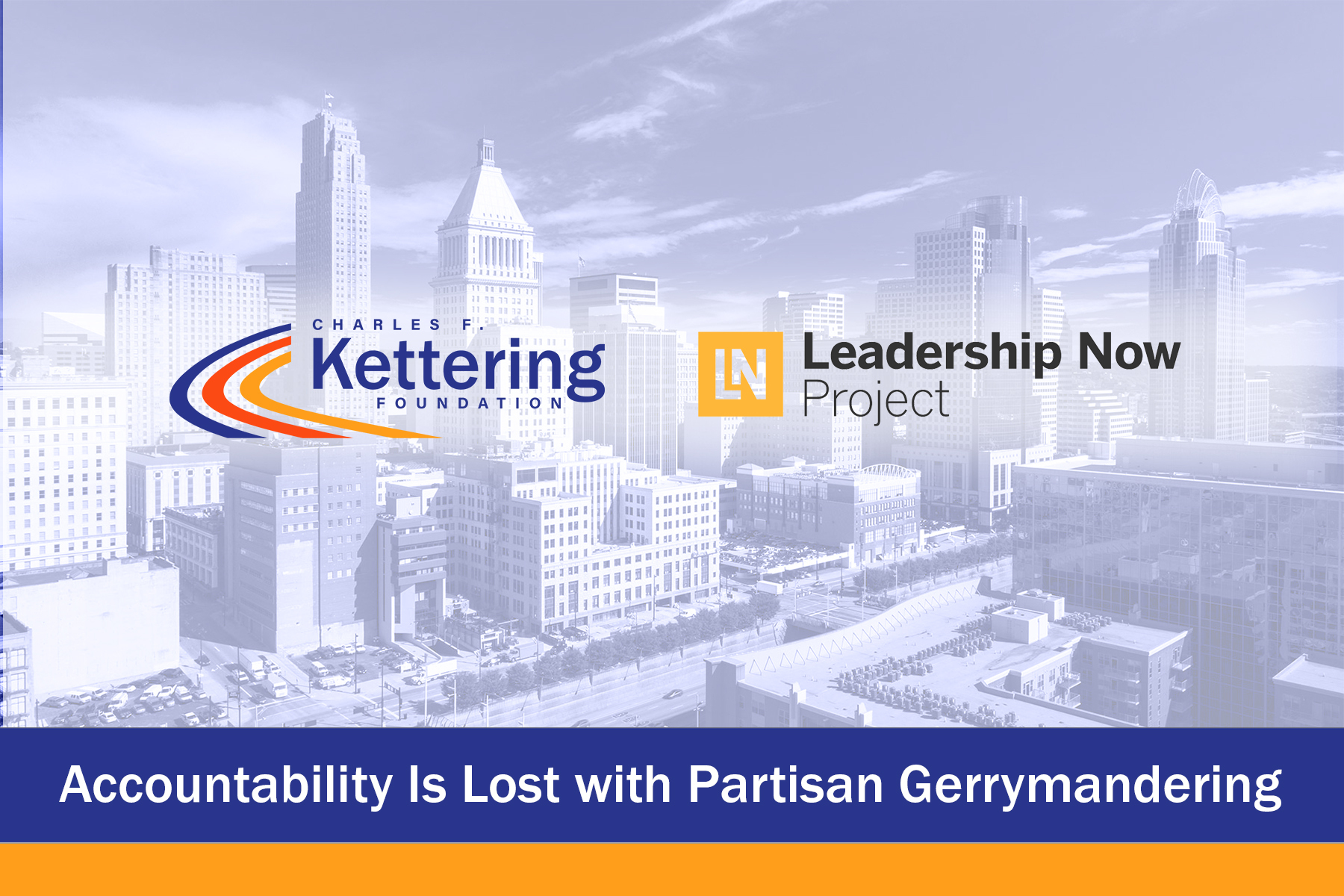
On April 16, the Charles F. Kettering Foundation partnered with the Leadership Now Project (LNP) to convene Ohio business leaders at the Queen City Club in Cincinnati. A number of presenters spoke at the event about the effect of gerrymandering on businesses, arguing that accountability and competition are just as important in state government as they are in business, and that when state legislatures participate in partisan gerrymandering, many elections are no longer competitive, innovation is restricted, and legislators aren’t held accountable. Eliminating gerrymandering, they argued, is not only good for democracy: it is good for business.
Valerie Lemmie, Kettering senior advisor for state and local government, welcomed the business leaders to the event, highlighting the work of the foundation and its commitment to thriving and inclusive democracies.
Following her remarks, Daniella Ballou-Aares, founder and CEO of LNP, and Sharon L. Davies, president and CEO of the Kettering Foundation, each focused on the threats to democracy, including the impact of gerrymandering. LNP is a membership organization of business and thought leaders taking action to protect and renew American democracy. Ballou-Aares shared the connection between global trends in democracy’s decline and the ability for business to engage in trade and competition. LNP seeks to partner with concerned business leaders to identify ways to strengthen democracy in their states.
Davies concentrated her remarks on polarization, saying it is a myth perpetuated by people who are not committed to preserving democracy. Gerrymandering creates an us-versus- them mentality when in reality, we are fellow citizens who disagree on some things. “This idea that we are hopelessly divided is a myth, not a fact,” Davies said. “We’ve never had to agree on everything to do the work of democracy, and we proved it in Ohio last year when both Republicans and Democrats voted together on three statewide initiatives.”
Ohioans will likely have another opportunity to vote together on the Citizens Not Politicians Amendment. The organization is still gathering signatures to ensure the amendment appears on the November ballot. Supported by Maureen O’Connor, retired chief justice of the Supreme Court of Ohio and Kettering senior fellow, it seeks to end gerrymandering in Ohio by creating a redistricting commission made up of 15 citizens. Senior Program Officer and Historian Alex Lovit moderated a conversation between O’Connor and David Pepper, Kettering senior fellow and former chair of the Ohio Democratic Party. O’Connor pointed out that if this commission is created, it will operate with transparency so that Ohioans can see democracy in action. According to Pepper, the victims of gerrymandering are the moderates of each political party. Gerrymandering results in noncompetitive races, hampered innovation, and more extreme politicians.
To close, Lovit asked, “Why should business care about democracy?” For Pepper, it is workforce development and diversity. The decline of state-level democracy, brought about by gerrymandering, has a direct impact on the ability of businesses to recruit employees and even remain in the state. According to O’Connor, it’s because all members of business are citizens. “‘We the people’ isn’t pure fluff,” she said. “It’s the foundation for our democracy.” When democracy and its institutions are working, businesses can do their work with more certainty.

